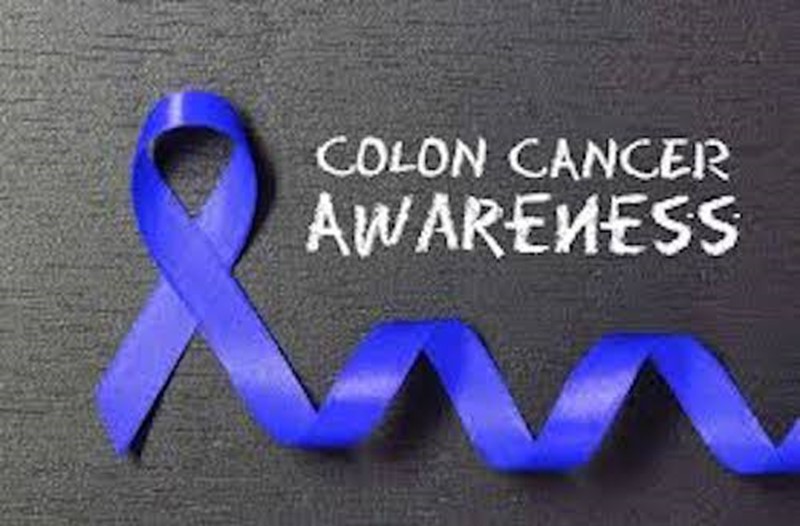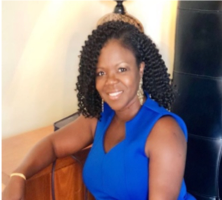
For most of us, the past few weeks have been fraught with shock, dismay, anxiety, and sheer disbelief. We are still trying to reconcile how and why someone so young, so talented, so exceptional can literally be snatched away from us at the pinnacle of his career. We have lost our first Black superhero, we have lost one of the brightest lights in the Black acting community, and we have lost that sense of wonder that once embodied the stance and echo of Wakanda Forever!
The death of Chadwick Boseman on August 28 at age 43 after a silent four-year battle with colon cancer has totally upended the medical guidance on the appropriate age (of 50 and over) for screening. Once thought of as a disease of the elderly (65 years and 69 years for men and women, respectively), colon cancer is now affecting an increasing number of young people under age 50. According to the American Cancer Society, 11 percent of individuals who currently have colon cancer are younger adults.
Boseman’s untimely death was like a lethal dagger that tore through the world and the Black community without warning or escape; there wasn’t much left to say or do but to face it. As with most diseases, including the recent trauma endured by COVID-19, Blacks are disproportionately affected, and statistics for colon cancer are no different. Blacks experience disparities in all areas on the colon cancer spectrum, from prevention and early detection to treatment and survival. Coupled with this sadness is an opportunity to raise awareness on colon cancer – especially in the Black community. Most importantly, those diagnosed must share their medical history with other family members as a way to prevent missed opportunities for screening.
Colon cancer is the second deadliest form of cancer after lung cancer, yet it’s one of the simplest to screen for – and if caught early, the cure rate is extremely high. So, if screening is easy and the cure rate is high, why are so many people succumbing to colon cancer? The fact is that there might be no symptoms in the early stages, but when they do appear, they’ll likely vary depending on the size of the cancer and where it’s located in the colon. According to the Mayo Clinic, sometimes colon cancer is called colorectal cancer – this cancer begins in the rectum and is located in both the colon and the rectum.
According to the American Cancer Society, there are no known causes for colon cancer, but there are risk factors that can be considered, such as:
- Older age
- Being African American
- Inflammatory intestinal conditions
- Family history of colon cancer
- Low-fiber, high-fat diet
- Sedentary lifestyle
- Diabetes
- Obesity
- Smoking
- Alcohol use
If you are a person who is considered at average risk for colon cancer, getting screened at age 50 is usually the recommendation. However, the American Cancer Society says that if you are at an increased risk due to being Black or having a family history of colon cancer, screening should be done at age 40 – or 10 years before the age the earliest family member was diagnosed (whichever is earliest). A colonoscopy is the best way to screen for colon cancer.
Signs and symptoms of colon cancer include:
- A persistent change in your bowel habits, including diarrhea or constipation, or a change in the consistency of your stool
- Rectal bleeding or blood in your stool
- Persistent abdominal discomfort, such as cramps, gas, or pain
- A feeling that your bowel doesn’t empty completely
- Weakness or fatigue
- Unexplained weight loss
Making changes in your everyday lifestyle has the potential to reduce your risk of colon cancer (and may offer other health benefits). Here are five steps you can consider taking:
- Eat a variety of fruits, vegetables, and whole grains. These foods contain vitamins, minerals, fiber, and antioxidants, all of which may play a role in cancer prevention.
- Drink alcohol in moderation, if at all. If you must drink, limit the amount of alcohol you drink to no more than one drink a day for women and two for men.
- Stop smoking. Talk to your doctor about ways to quit that may work for you.
- Exercise most days of the week. Get 30 minutes of exercise on most days. Start slowly and build up to 30 minutes. Always talk to your doctor before starting any exercise program.
- Maintain a healthy weight. Aim to lose weight slowly by increasing the amount of exercise you get and reducing the number of calories you eat.
If you are over 50 or are considered a person at high risk for colon cancer, speak to your doctor about screening. A colonoscopy might be recommended. A long, flexible, slender tube is attached to a video camera and monitor so that the doctor can view your entire colon and rectum. If any suspicious areas are found, your doctor can pass surgical tools through the tube to take tissue samples for analysis; doctors can also remove polyps.
So as we collectively mourn the loss of our first Black superhero, let us be our own rescue. If you are over 50 or Black, please take the time to understand your risks and the steps you can take to reduce those risks.
 Vanessa Ingrid Farrell is a speaker, best-selling author, and CEO and founder of VI Health & Wellness Coaching, LLC. Her coaching practice helps busy women, especially those in leadership roles, unapologetically prioritize and preserve their heart health without sacrificing career and the joys of everyday life experiences. Born on the beautiful island of Montserrat, she currently resides on the island of St. Croix in the United States Virgin Islands. To learn more about our coaching services or to book as session, email us at VFarrell@vihealthcoaching.com or visit our website at www.vihealthcoaching.com . You can also find Vanessa’s work on Amazon
Vanessa Ingrid Farrell is a speaker, best-selling author, and CEO and founder of VI Health & Wellness Coaching, LLC. Her coaching practice helps busy women, especially those in leadership roles, unapologetically prioritize and preserve their heart health without sacrificing career and the joys of everyday life experiences. Born on the beautiful island of Montserrat, she currently resides on the island of St. Croix in the United States Virgin Islands. To learn more about our coaching services or to book as session, email us at VFarrell@vihealthcoaching.com or visit our website at www.vihealthcoaching.com . You can also find Vanessa’s work on Amazon


